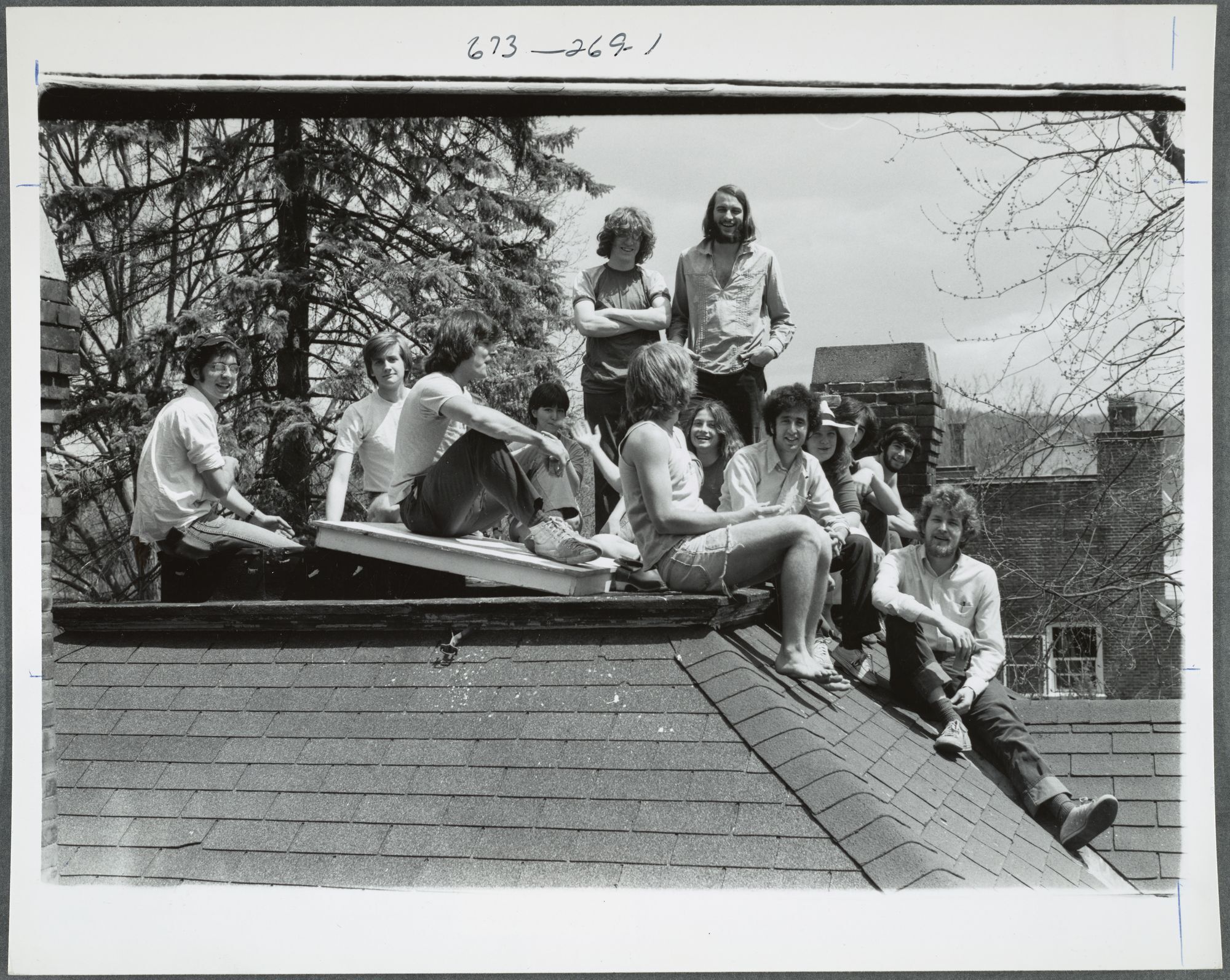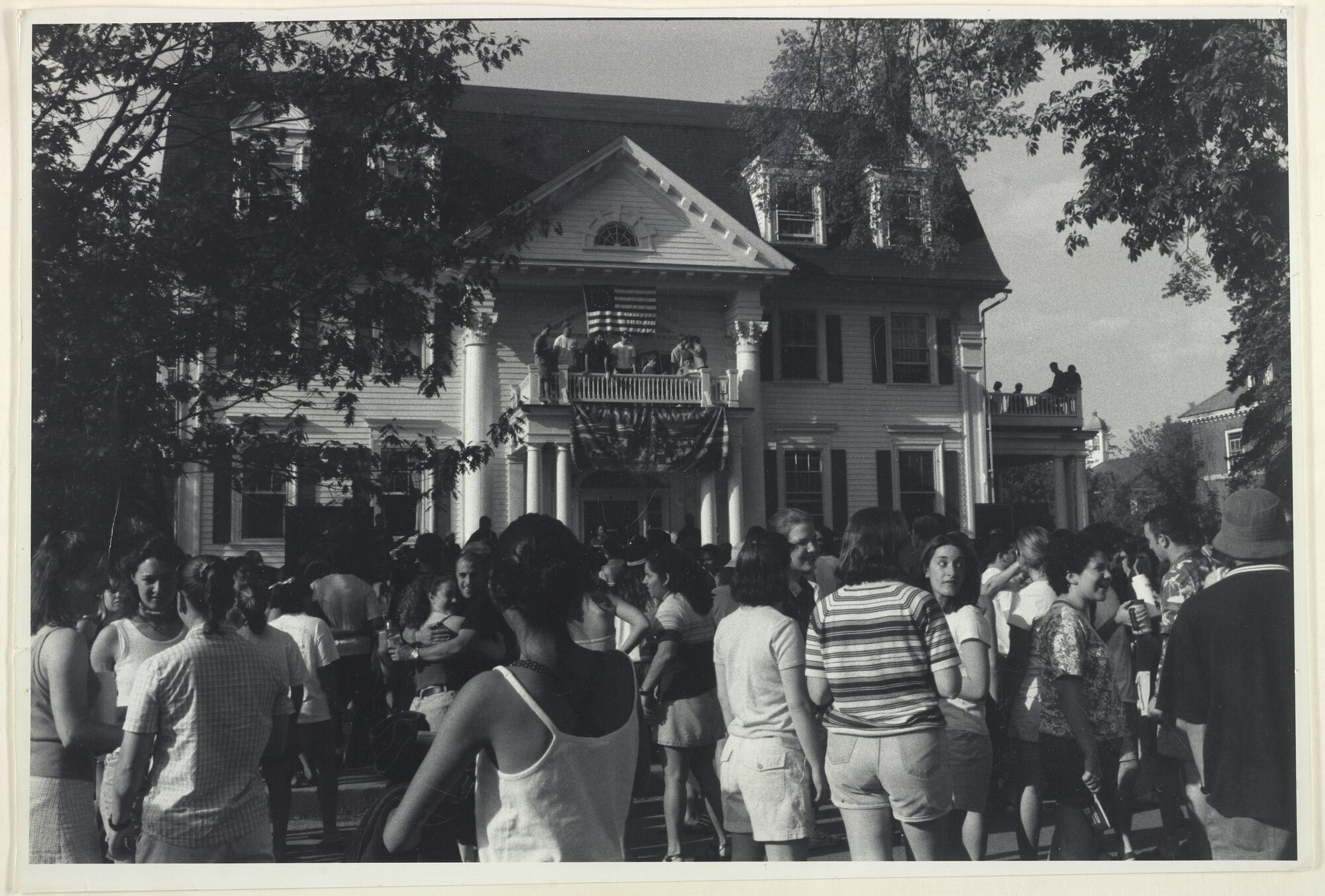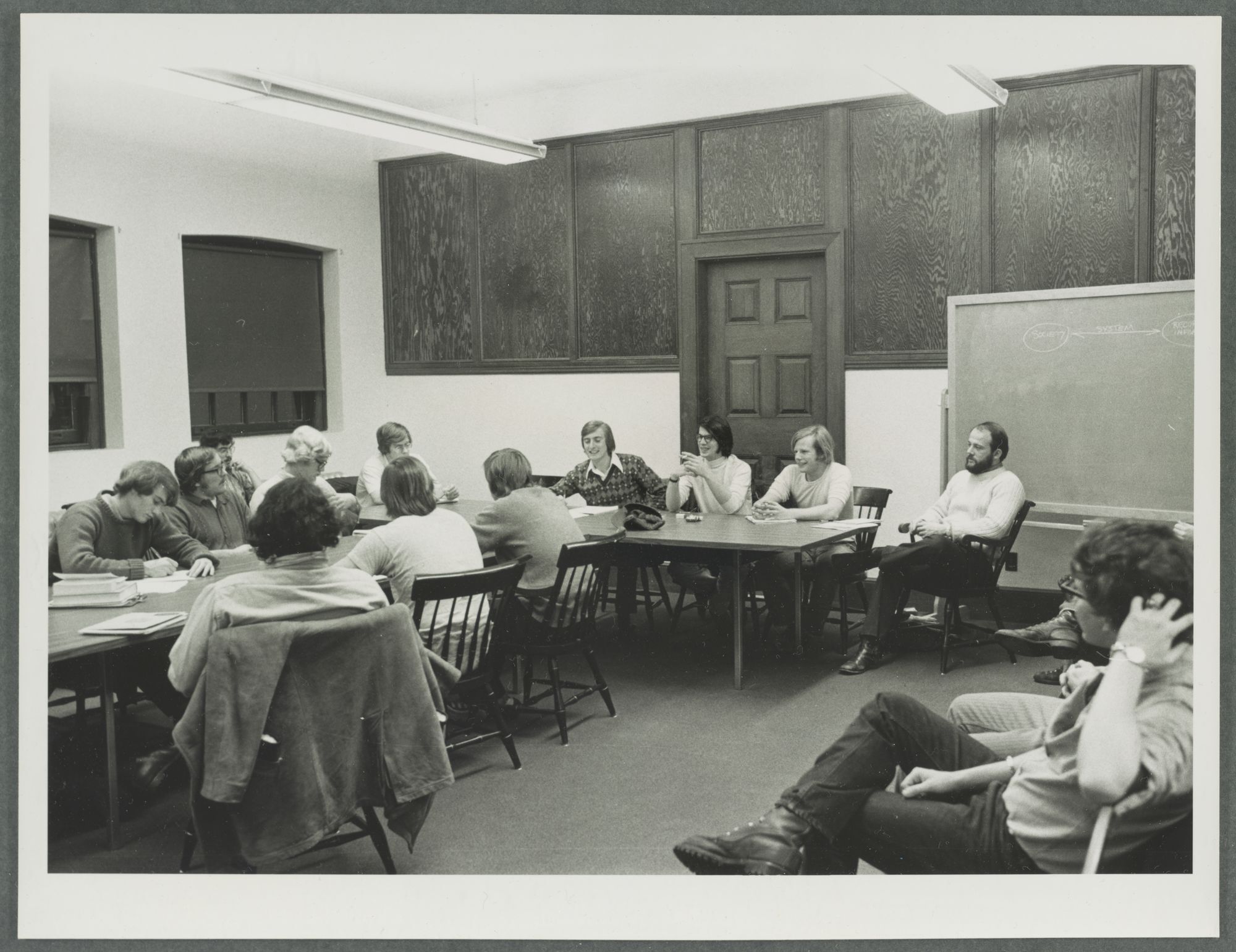An exhibit about discussions surrounding the use of alcohol in Greek spaces in the 1970s and 80s. Exhibit curated by Spencer Mancuso '25 as his final fellowship project.
Drinking Culture, Foley House, and Examination of the Greek System after Coeducation
An exhibit about discussions surrounding the use of alcohol in Greek spaces in the 1970s and 80s. Exhibit curated by Spencer Mancuso '25 as his final fellowship project. Keep scolling to view his curator's statement and exhibit index.
Curator's Statement
Welcome to my digital exhibit on drinking culture, Foley House, and the recodification of the Greek system.
This term, I sought to learn more about the role of Dartmouth’s Greek system in social life through the lens of alcohol use. As a first-year UGA, I’ve been in the role of conveying the idiosyncrasies of Dartmouth social life to freshmen. Over the course of facilitating my freshman floor community’s entrance into Dartmouth social life, I’ve been an agent of the college’s disciplinary policies at the same time as I’ve been a peer support to students who struggle with alcohol use. As someone with no connections at Dartmouth before I arrived on campus for my freshman fall, I’ve been continually perplexed by drinking culture on campus.
Since drinking culture emerged as a product of distinct interactions between students, Greek spaces, and College administration, drinking on campus today doesn’t look the same as it did 40 years ago. Today’s social events are wrapped up in event registration, age checkpoints, online bartender registration, rules about open containers and hard alcohol emerged from discussions about what role alcohol and Greek spaces should have in campus social life. This year, the Student Wellness Center is piloting an initiative to provide Polar Seltzers free of charge at all registered Greek events as an alternative to drinking alcohol. Still, the cultural myth of Dartmouth as a drinking school proliferates online and pervades freshman conversations–whether or not it still remains true–and the majority of Dartmouth social life exists within male-owned spaces.
Greek life and alcohol abuse has been a perennial concern for Dartmouth’s administration, and a researcher could find a wealth of information about alcohol use on campus in any decade. I chose to research the culture surrounding drinking after coeducation since the entrance of women onto Dartmouth’s campus prompted serious reflection about what the role of the fraternity system should be on an integrated campus.
Additionally, the 1970s in the United States saw an increased awareness of substance abuse. In 1970, the National Institute on Alcohol Abuse and Alcoholism was established as a part of the signing of the Comprehensive Alcohol Abuse and Alcoholism Prevention, Treatment, and Rehabilitation Act. Such national attention to alcohol use gave people new words and frameworks to describe alcohol abuse at a crucial moment in Dartmouth’s history. At the same time, this new vocabulary and framework to assess consumption provided a convenient way to pathologize individual behavior rather than the cultural framework that encouraged alcohol use in the first place.
The subject of my research is less linear and clear-cut than the work of past historical accountability fellows, which is reflected in this digital exhibit. Rather than providing a rote history, my digital exhibit will center around culture and campus conversations. First, you will look at relics of Dartmouth drinking mythology are continually revisited by students at the time. In the middle sections, you’ll hear about faculty pushback to the Greek system, administration responses to alcohol use and calls to reform the system, as well as a detailed examination of Foley House–a co-ed alternative fraternity that Dartmouth administration rejected. Finally, we will look at perspectives from outside the Dartmouth bubble as extensions of Dartmouth’s internal culture war.
 Historical Accountability Student Research Program
Historical Accountability Student Research Program


